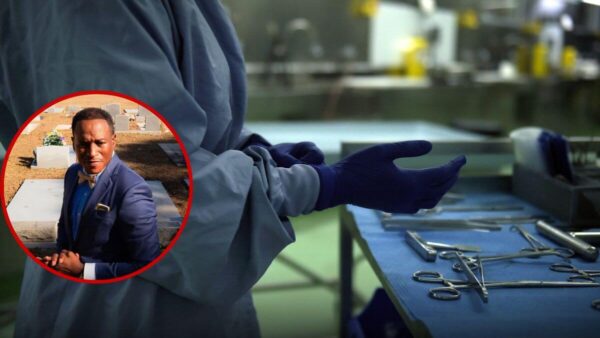News broke about yet another prison inmate in Alabama whose remains were returned to his family missing major organs, revealing a bizarre pattern of mistreatment happening within the state’s prison system.
Kelvin Moore died at the Limestone Correctional Facility on July 21, 2023, from a fentanyl overdose at age 43.
Before authorities returned his body to his family, it was first sent to the University of Alabama at Birmingham (UAB) for an autopsy.

A few days later, Moore’s body arrived at a funeral home in Mobile, Alabama, where the funeral director found that most of his internal organs were missing. ABC 3340 reported that his brother had to travel to the University of Alabama hospital in Birmingham to retrieve his organs.
“Posthumously, they robbed his organs without our permission. They didn’t ask,” Moore’s older brother, Simone, told the news station. “That is the most vile action to do to someone.”
Moore’s case bears strikingly eerie similarities to those of Charles Singleton and Brandon Dotson, who were both prison inmates and died in the custody of the Alabama Department of Corrections.
Singleton, 74, died more than two years ago at a hospital that provides care for older inmates. Dotson, 43, was found dead two months ago in his cell at Ventress Correctional Facility.
Similar to Moore, the University of Alabama at Birmingham also conducted Singleton’s autopsy, and his body was returned to his family, missing all of his organs, including his brain.
In Dotson’s case, the Alabama Department of Corrections conducted his autopsy, but an independent pathologist later discovered that his heart was missing after his body was returned to his family members severely decomposed.
In a federal lawsuit, Dotson’s family alleges that the Alabama Department of Corrections kept Dotson’s heart without the family’s consent and believes the University of Alabama’s Heersink Medical School was a “possible intended recipient” of the organ.
It’s common practice for organs to be removed and placed in bags during an autopsy, but they are normally placed back inside the body once the process is complete.
Andscape interviewed two former UAB medical students who said they discovered that hospital school personnel were harvesting some inmates’ organs without family consent in 2018. They challenged the school’s practices, according to the outlet, but school administrators told them they were allowed to keep organs from inmates since they had approval from wardens in the prisons where they died.
Alabama Gov. Kay Ivey signed a bill in July 2021 to prevent forensic personnel from harvesting organs after autopsies without permission from next of kin, but authorities have yet to explain why these inmates’ organs were taken without the families’ consent.
Both Moore’s and Singleton’s families also plan to file a lawsuit.
The attorney representing Dotson’s family, Lauren Faraino, told ABC 3340 that the cases prove “this is absolutely part of a pattern.”
She also told Andscape that Black families are more at risk of being victims of this unethical practice since 56 percent of Alabama’s 21,000 inmate population is Black. Moreover, many of the state’s 12 men’s prison facilities are more than 100 percent over capacity.
The Department of Justice has sued the state of Alabama and its Department of Corrections after an investigation revealed several of the state’s prisons are overcrowded, understaffed, and in deplorable condition. A trial is slated to start in November.


